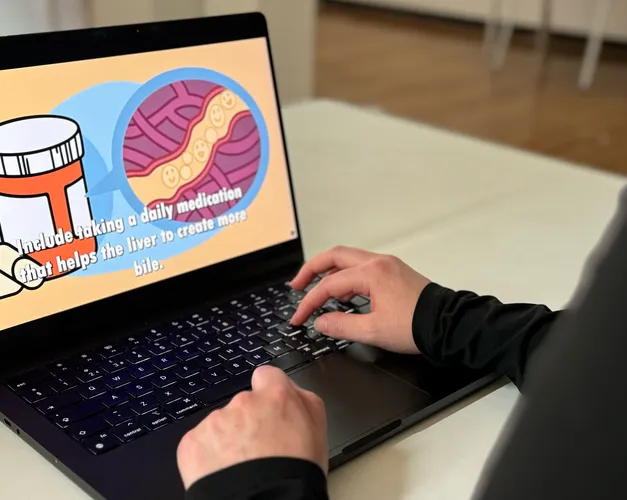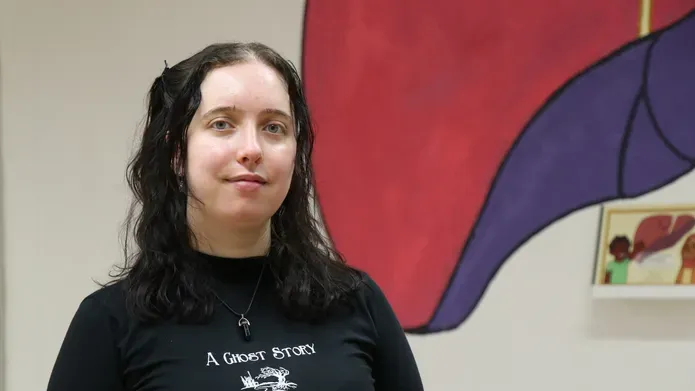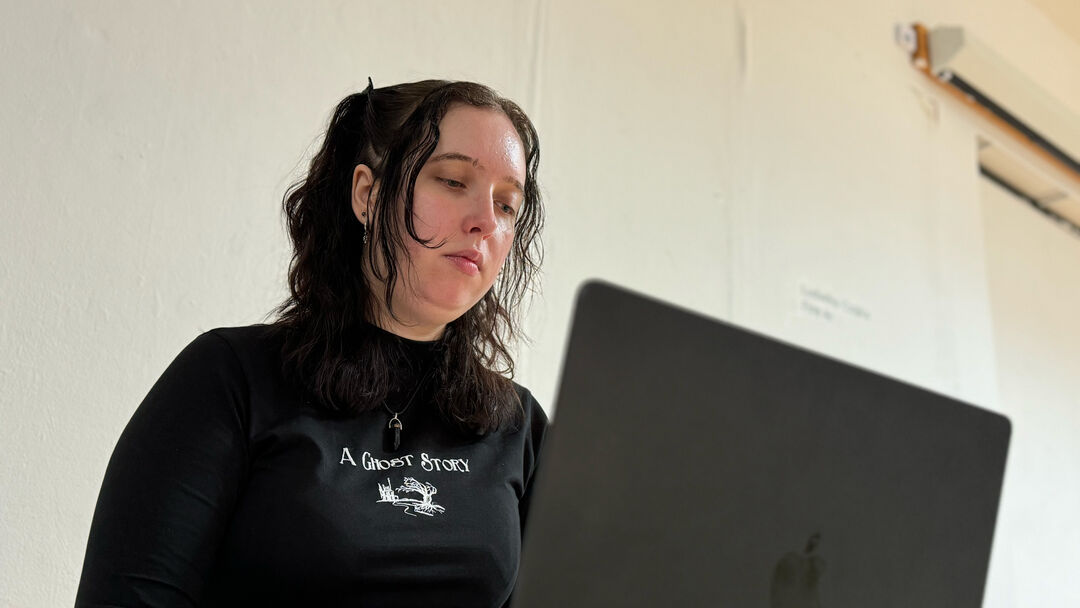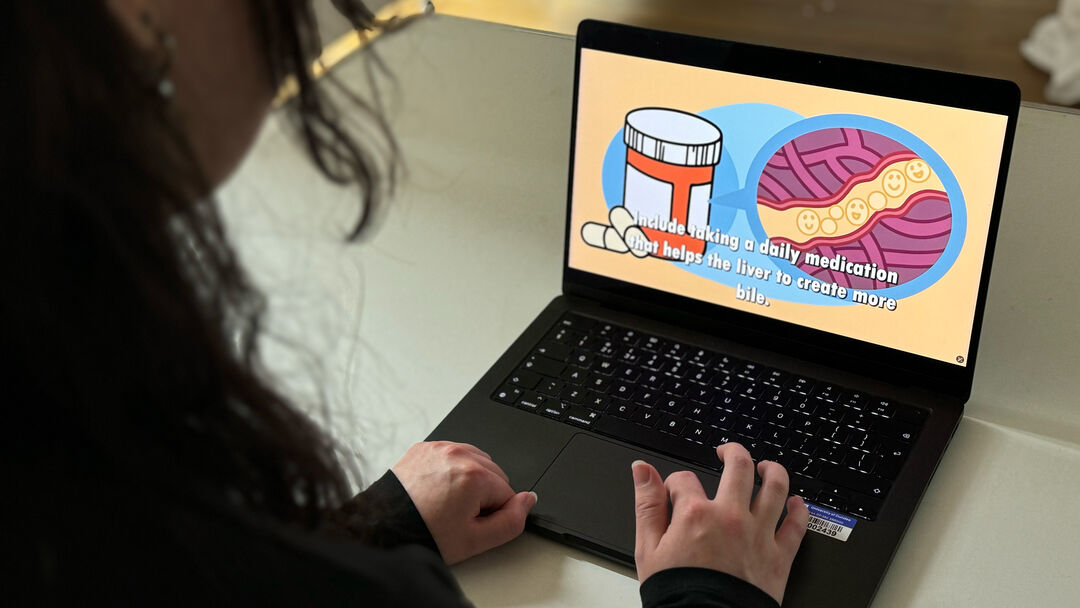Feature
Student shines light on rare disease to help newly diagnosed children
A University of Dundee student has used the liver disease which altered her life as a form of inspiration for her Masters project
Published on 21 August 2024


Leah O’Donnell was diagnosed with Primary Sclerosing Cholangitis (PSC), a rare form of liver disease, at only 17-years-old.
At the time of her diagnosis, she was left feeling overwhelmed by the complicated medical jargon that explained her condition and frustrated by the lack of resources online.
Eight years on, the Glasgow-born student is on a mission to ensure that youngsters in her position have access to resources that they can easily understand.
As part of her Medical Art postgraduate project, Leah has created an educational animated film on PSC, designed with adolescents and children in mind.

PSC is an uncommon form of liver disease in which the immune system attacks the tubes that drain bile from the liver. Inflammation can then cause dangerous blockages in the tubes.
With the correct treatment, most people diagnosed with PSC will go on to live relatively healthy lives.
For some, however, it can lead to liver failure, and if left untreated, can cause serious complications such as sepsis and jaundice.
PSC affects only 7 in 100,000 people in the UK, and individuals aren’t usually diagnosed until adulthood.
“I had no idea I was sick,” said Leah. “I went from being a perfectly healthy teenager to being told I had a chronic condition that would affect me for the rest of my life. It made me face my mortality way earlier than I was prepared for.
“My doctor at the time did a great job of condensing the information as much as possible, explaining what was happening with my liver and the kind of treatments I could expect to receive.
“And I was lucky that my mum was there with me – she's a nurse and was able to translate a lot of the really complicated medical terms coming from the doctor. I’m aware not everyone has that, but it was still extremely scary and overwhelming.”

After her diagnosis, Leah was encouraged to research her condition.
She found limited resources online for PSC, and those she did find were aimed toward healthcare professionals or adults with some medical knowledge.
Leah said, “The medical jargon is overwhelming, and not everyone has the benefit I had of having a mum who understands and can translate it to simple terms.
“I felt very sympathetic for families, parents, who have a little one diagnosed with this disease and are trying to look it up to find out what it means.”
Looking to change the offering, she has created family-friendly resources that explain what PSC is, as well as its symptoms and treatments, that can be understood by all ages.
The animated film, Primary Sclerosing Cholangitis: A Guide for Children and Families, follows a young child as they experience the symptoms of PSC, are then seen by a doctor and given a diagnosis, and provides information on the condition and potential treatments.
Medical professionals involved in Leah’s care have praised the film, and plan to share it within their networks.
Dr Damien Leith, who is Leah’s primary liver consultant, and also a Clinical Research Fellow in the University’s School of Medicine, added, "For anyone, being told they have a chronic health condition can be scary and this is especially true for children and adolescents and their carers.
“Leah's video provides important and accurate information about the causes and management PSC, which is understandable for people of all ages and importantly doesn't feel overwhelming. I look forward to being able to recommend Leah's video to my patients with PSC in the future.”
As part of Leah’s postgraduate project, she has also created an educational poster which she hopes will be displayed in relevant healthcare areas, such as children’s hospitals.
Both resources will be on display at the University's Duncan of Jordanstone College of Art & Design Masters Show 2024, open to the public from Saturday 24 August – Sunday 1 September.